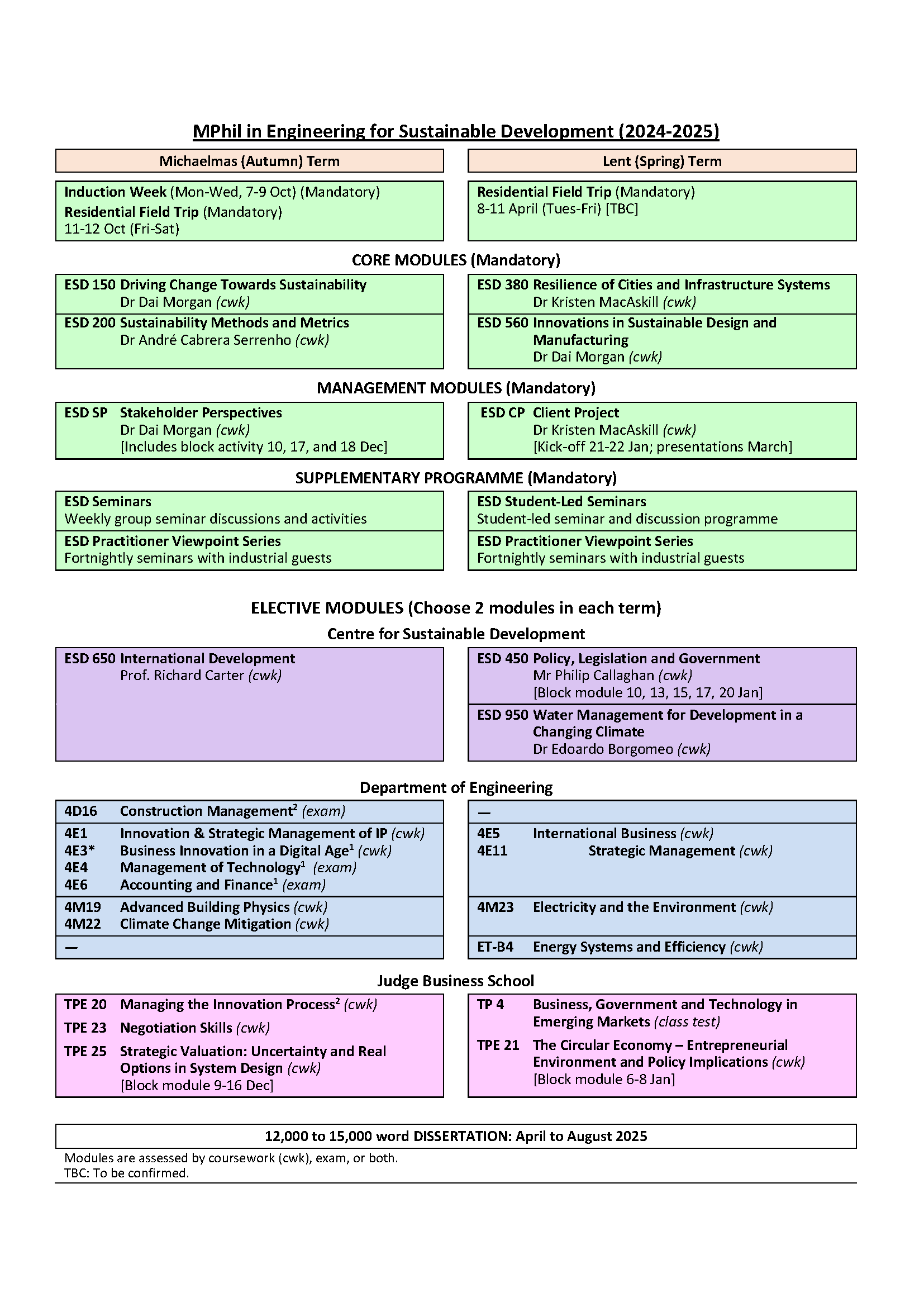ESD 380: Resilience of Infrastructure Systems
Leaders: Dr Kristen MacAskill and Professor Richard Fenner
Timing: Lent term 2021
Structure: Eight 2-hour sessions in weeks 1 to 8 plus coursework assignment
Synopsis
This course will look at engineering and infrastructure development with an understanding that infrastructure designed today needs to be able to deliver services for an uncertain future. It will highlight the limitations of managing infrastructure systems under the assumption of a stable environment and the need for planning for ‘risk tails’.
Part 1 of the course will introduce key concepts of risk and resilience – familiarising students with fundamental principles and ongoing debates in theory and practice.
Using mega-cities as a background for the design and management of infrastructure, Part 2 of the course will explore the strategies and tactics for delivering liveable and resilient cities of the future. This will include an exploration of adaptation pathways and will cover key concepts such as liveability.
Part 3 will move towards a more operational view for managing city infrastructure systems, highlighting current examples of practice for the anticipation of and recovery from shocks and stresses. The wider international agenda and theory of disaster risk management will be provided, but the predominant focus will be on case study discussion.
Learning objectives
- To explore how people are served by engineering interventions in urban settings – considering the needs of today and of the future.
- To introduce broad frameworks that help support conceptualisation of future cities and infrastructure systems.
- To demonstrate resilience concepts in practice and how these shape governance and design decisions for cities and infrastructure systems.
- To provide students with experience in applying concepts and frameworks that promote resilience-based thinking.
Students will develop:
- Awareness of different disciplinary perspectives of resilience and how the concept of resilience can provide a practical framework for guiding decisions.
- Awareness of tensions between risk management thinking and resilience.
- Knowledge and insight into the principles of disaster risk management (exploring decision-making at a city level).
- Skills in critiquing resilience characteristics of an existing project/planning proposal.
Content
Part 1:
- Introduction to key concepts.
Part 2:
- Shaping resilient cities – a conceptual exploration
- Envisioning future cities; city archetypes; liveability and well-being; anti-fragility; and adaptation pathways.
Part 3:
- Managing city infrastructure systems: anticipation of and recovering from shocks and stresses
- The resilience of critical infrastructure systems, the Sendai Framework (international guidance), disaster risk management, examples of national policies, measuring resilience, and case studies of managing shocks and stresses.
Assessment: 100% coursework
Indicative (may vary from year to year): One coursework assignment of up to 4,000 words.

